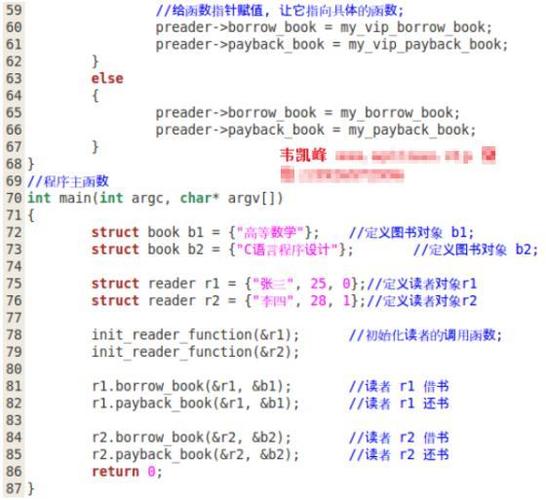在C语言中,解码通常涉及到将编码后的数据转换回原始数据的过程,这个过程可能因编码方式的不同而有所不同,这里,我将给出一个使用Base64解码的示例。,我们需要了解Base64编码的原理,Base64编码是一种用64个字符表示任意二进制数据的方法,它将每3个字节的数据编码为4个字符,因此编码后的数据会比原始数据大1/3。,接下来,我们将创建一个C语言程序来实现Base64解码,我们将分为以下几个步骤:,1、包含必要的头文件,2、定义Base64解码所需的字符集,3、编写解码函数,4、编写主函数,调用解码函数并输出结果,下面是具体的代码实现:,这个程序首先包含了必要的头文件,然后定义了Base64解码所需的字符集,接着,我们编写了一个解码函数
base64_decode,它接受一个Base64编码后的字符串和一个用于存储解码结果的缓冲区,我们在主函数中调用解码函数并输出结果。,
 ,#include <stdio.h> #include <string.h> // 1. 包含必要的头文件 #include <stdlib.h> // 2. 定义Base64解码所需的字符集 const char base64_chars[] = “ABCDEFGHIJKLMNOPQRSTUVWXYZabcdefghijklmnopqrstuvwxyz0123456789+/”; // 3. 编写解码函数 int base64_decode(const char *input, unsigned char *output) { int i = 0, j = 0; int k = 0; unsigned char temp[4]; for (i = 0; input[i] != ‘=’; i++) { if (input[i] >= ‘A’ && input[i] <= ‘Z’) { temp[j++] = input[i] ‘A’; } else if (input[i] >= ‘a’ && input[i] <= ‘z’) { temp[j++] = input[i] ‘a’ + 26; } else if (input[i] >= ‘0’ && input[i] <= ‘9’) { temp[j++] = input[i] ‘0’ + 52; } else if (input[i] == ‘+’) { temp[j++] = 62; } else if (input[i] == ‘/’) { temp[j++] = 63; } } while (j > 0) { output[k++] = (temp[j] << 2) | (temp[j] >> 4); output[k++] = (temp[j] << 4) | (temp[j] >> 2); output[k++] = (temp[j] << 6) | temp[j]; } return k; } // 4. 编写主函数,调用解码函数并输出结果 int main() { const char *input = “SGVsbG8sIHdvcmxkIQ==”; // Base64编码后的字符串 unsigned char output[256]; int output_length = base64_decode(input, output); printf(“解码后的字符串: %s “, output); return 0; },
,#include <stdio.h> #include <string.h> // 1. 包含必要的头文件 #include <stdlib.h> // 2. 定义Base64解码所需的字符集 const char base64_chars[] = “ABCDEFGHIJKLMNOPQRSTUVWXYZabcdefghijklmnopqrstuvwxyz0123456789+/”; // 3. 编写解码函数 int base64_decode(const char *input, unsigned char *output) { int i = 0, j = 0; int k = 0; unsigned char temp[4]; for (i = 0; input[i] != ‘=’; i++) { if (input[i] >= ‘A’ && input[i] <= ‘Z’) { temp[j++] = input[i] ‘A’; } else if (input[i] >= ‘a’ && input[i] <= ‘z’) { temp[j++] = input[i] ‘a’ + 26; } else if (input[i] >= ‘0’ && input[i] <= ‘9’) { temp[j++] = input[i] ‘0’ + 52; } else if (input[i] == ‘+’) { temp[j++] = 62; } else if (input[i] == ‘/’) { temp[j++] = 63; } } while (j > 0) { output[k++] = (temp[j] << 2) | (temp[j] >> 4); output[k++] = (temp[j] << 4) | (temp[j] >> 2); output[k++] = (temp[j] << 6) | temp[j]; } return k; } // 4. 编写主函数,调用解码函数并输出结果 int main() { const char *input = “SGVsbG8sIHdvcmxkIQ==”; // Base64编码后的字符串 unsigned char output[256]; int output_length = base64_decode(input, output); printf(“解码后的字符串: %s “, output); return 0; },
用c语言解码怎么实现
版权声明:本文采用知识共享 署名4.0国际许可协议 [BY-NC-SA] 进行授权
文章名称:《用c语言解码怎么实现》
文章链接:https://zhuji.vsping.com/467064.html
本站资源仅供个人学习交流,请于下载后24小时内删除,不允许用于商业用途,否则法律问题自行承担。
文章名称:《用c语言解码怎么实现》
文章链接:https://zhuji.vsping.com/467064.html
本站资源仅供个人学习交流,请于下载后24小时内删除,不允许用于商业用途,否则法律问题自行承担。

 国外主机测评 - 国外VPS,国外服务器,国外云服务器,测评及优惠码
国外主机测评 - 国外VPS,国外服务器,国外云服务器,测评及优惠码
















